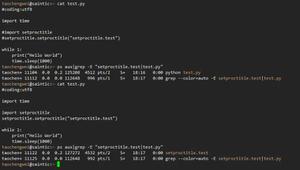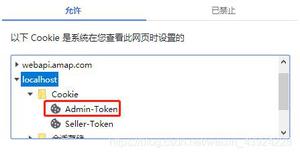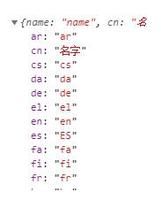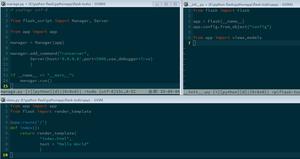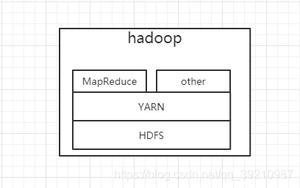Vue框架(四)——路由跳转、路由传参、cookies、axios、跨域问题、elementui模块

路由跳转
三种方式:
$router.push / $router.go / router-link to
this.$router.push('/course');this.$router.push({name: course}); //这个name是router.js里面设置的name
this.$router.go(
-1); //页面后退this.$router.go(
1); //前进<router-link to="/course">课程页</router-link><router-link :to="{name: 'course'}">课程页</router-link>
路由传参
第一种:
router.js设置
routes: [// ... {
path:
'/course/:id/detail', //:id接收参数 name:
'course-detail', component: CourseDetail
},
]
跳转 .vue
<template> <router-link :to="`/course/${course.id}/detail`">{{ course.name }}</router-link>
</template>
<script>
// ...
goDetail() {
this.$router.push(`/course/${this.course.id}/detail`);
}
</script>
接收 .vue
created() { let id
= this.$route.params.id;}
第二种:
router.js设置
routes: [// ... {
path:
'/course/detail', name:
'course-detail', component: CourseDetail
},
]
跳转 .vue
<template> <router-link :to="{
name: 'course-detail',
query: {id: course.id}
}">{{ course.name }}</router-link>
</template>
<script>
// ...
goDetail() {
this.$router.push({
name: 'course-detail',
query: {
id: this.course.id
}
});
}
</script>
接收 .vue
created() { let id
= this.$route.query.id;}
仓库:vuex
仓库配置:store.js
import Vue from'vue'import Vuex from'vuex'
Vue.use(Vuex);
export default new Vuex.Store({
// 全局可以访问的变量 - 获取值
// 组件内:this.$store.state.title
state: {
title: '主页'
},
// 全局可以访问的方法 - 修改值
// 组件内:this.$store.commit('updateTitle', '新值')
mutations: {
updateTitle (state, newValue) {
state.title = newValue
}
},
actions: {}
})
赋值
this.$store.state.title = 'newTitle'
this.$store.commit('setTitle', 'newTitle')
取值
console.log(this.$store.state.title)
vue-cookies插件 (设置cookies可以使用)
安装:在pycharm上面安装
cnpm install vue-cookiesmain.js配置 (推荐使用第二种设置)
// 第一种import cookies from'vue-cookies' // 导入插件Vue.use(cookies);
// 加载插件new Vue({
// ... cookies,
// 配置使用插件原型 $cookies}).$mount(
'#app');// 第二种import cookies from'vue-cookies' // 导入插件Vue.prototype.$cookies
= cookies; // 直接配置插件原型 $cookies使用 (增删改查cookies)
// 增(改): key,value,exp(过期时间)// 1 = '1s' | '1m' | '1h' | '1d'this.$cookies.set(
'token', token, '1y');// 查:keythis.token
= this.$cookies.get('token');// 删:keythis.$cookies.remove(
'token');注意:cookies一般都是用来存储token的
// 1) 什么是token:安全认证的字符串// 2) 谁产生的:后台产生// 3) 谁来存储:后台存储(session表、文件、内存缓存),前台存储(cookie)// 4) 如何使用:服务器先生成反馈给前台(登陆认证过程),前台提交给后台完成认证(需要登录后的请求)// 5) 前后台分离项目:后台生成token,返回给前台 => 前台自己存储,发送携带token请求 => 后台完成token校验 => 后台得到登陆用户前后台交互:axios插件
这个类似之前讲的ajax
安装:也是在pycharm中安装
cnpm install axiosmain.js配置
import axios from'axios' // 导入插件Vue.prototype.$axios
= axios; // 直接配置插件原型 $axios使用
this.$axios({ url:
'请求接口', method:
'get|post请求', data: {post等提交的数据},
params: {get提交的数据}
}).then(请求成功的回调函数).catch(请求失败的回调函数)
//举例
get请求方式
this.$axios({
url: 'http://127.0.0.1:8000/test/ajax/',
method: 'get',
params: {
username: this.username
}
}).then(function (response) {
console.log(response)
}).catch(function (error) {
console.log(error)
});
post请求方式
this.$axios({
url: 'http://127.0.0.1:8000/test/ajax/',
method: 'post',
data: {
username: this.username
}
}).then(function (response) {
console.log(response)
}).catch(function (error) {
console.log(error)
});跨域问题(同源策略)
产生跨域问题的原因
// 后台接收到前台的请求,可以接收前台数据与请求信息,发现请求的信息不是自身服务器发来的请求,拒绝响应数据,这种情况称之为 - 跨域问题(同源策略 CORS)// 导致跨域情况有三种// 1) 端口不一致// 2) IP不一致// 3) 协议不一致解决方法在django项目中下载django-cors-headers模块
// 1) 安装:pip3 install django-cors-headers// 2) 注册:在settings.py文件INSTALLED_APPS
= [ ...
'corsheaders']
// 3) 设置中间件:MIDDLEWARE
= [ ...
'corsheaders.middleware.CorsMiddleware']
// 4) 设置跨域:CORS_ORIGIN_ALLOW_ALL
= Trueelement-ui插件 类似于bootstrap往里面找各种样式
安装
cnpm i element-ui -Smain.js配置
import ElementUI from'element-ui';import'element-ui/lib/theme-chalk/index.css';Vue.use(ElementUI);
使用
依照官网 https://element.eleme.cn/#/zh-CN/component/installation api 复制粘贴以上是 Vue框架(四)——路由跳转、路由传参、cookies、axios、跨域问题、elementui模块 的全部内容, 来源链接: utcz.com/z/509139.html

